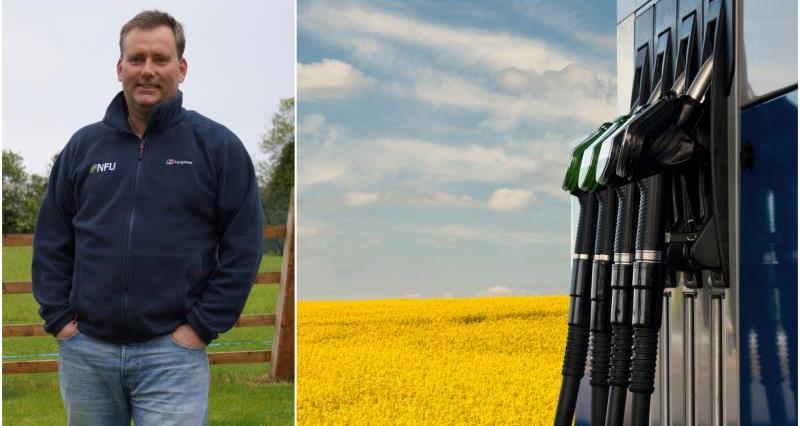He writes:
UK farmers need the government to support the biofuels industry and to support production for this industry - that’s the message we took to the Minister in the Department for Transport (DfT) last week.
When both of the UK’s biofuel factories were running at full capacity it offered farmers across the country, but especially us the North East, a win-win situation. Arable farmers had a domestic market for their previously exportable surplus wheat and livestock and dairy farmers benefited from a local protein source thanks to the high quality animal feed – the co-product of biofuel production.
Last year we saw excellent yields and domestic demand was well supplied. But with both biofuel factories running at reduced capacity, we have no option but see our surplus production enter the world market putting further price pressure on already volatile markets.
- Why do we need a 25-year Food and Farming Plan? - Director of Policy, Andrew Clark
- BPS Blog: Lent, Easter and April Fools - NFU Vice President Guy Smith
- Big Farmland Bird Count - a farmer's perspective - Yorkshire farmer Richard Bramley
- Blog: Fruit and veg - why don't we eat more? - Lee Abbey, horticulture adviser
- Tesco's commitment must be followed up - Ruth Mason, Chief Food Chain Adviser
- Farming is a sector worth investing in - NFU chief science and regulatory affairs adviser Dr Helen Ferrier
Last year the indirect land use change (ILUC) debate concluded in Europe with the result being that each member state needs to impose a crop cap by April 2017 limiting the amount of crop-based biofuel used domestically.
Each member state has the freedom to set its own crop cap provided it is at or under the EU suggested 7%, but the UK is proposing to go much lower - nearer to 1.5%.
The DfT will be consulting where the crop cap should be set later this year - that’s why the NFU has been knocking on doors trying to influence. We secured the meeting with the minister as a direct result of NFU members raising the issue at a local constituency MP meeting in Scarborough, proving the importance of local lobbying.
Much of the controversy surrounding biofuels and future policy is centred on the food versus fuel argument, but that simply isn’t plausible anymore. World stocks of feed wheat are high, commodity prices are on the floor and the FAO food price index continues to fall month on month, proving there’s plenty to go around. When operating at full capacity the UK biofuels industry can use over 2 million tonnes of feed wheat and produces enough animal feed for around 40% of the UK dairy herd; given we currently import 70% of our protein requirement this co-product would go a long way in helping us balance the books.
It isn’t just wheat either; we currently see around 40% of UK rapeseed bound for biofuel production in other member states and although a UK crop cap would not stop this, it could set a precedent for other member states to follow and the NFU are keen to ensure the UK sets the best example.
